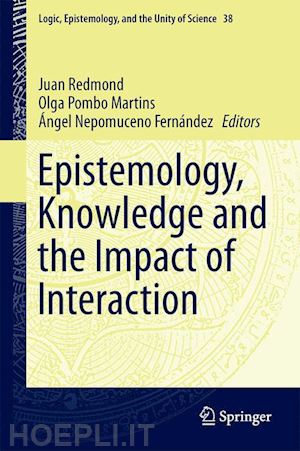Part 1: The Dynamics of Knowledge I: Proof-Theoretical Approaches and the Interactive Viewpoint.- Chapter 1 Granström, Johan:
Perennial Intuitionism.- Chapter 2 Piecha, Thomas and Schroeder-Heister, Peter:
Atomic Systems in Proof-Theoretic Semantics: Two Approaches.- Chapter 3 Rahman, Shahid; Jovanovic, Radmila and Clerbout, Nicolas:
Knowledge and its Game Theoretical Foundations: The Challenge of the Dialogical Approach to Constructive Type Theory.- Chapter 4 McAdams, Darryl and Sterling, Jonathan:
Dependent types for Pragmatics.- Chapter 5 Naibo, Alberto; Petrolo, Mattia and Seiller, Thomas:
On the Computational Meaning of Axioms.- Part 2 The Dynamics of Knowledge II: Epistemology, Games, and Dynamic Epistemic logic.- Chapter 6 Pacuit, Eric and Roy Olivier:
A Dynamic Analysis of Interactive Rationality.- Chapter 7 Hawke, Peter:
Relevant Alternatives in Epistemology and Logic.- Chapter 8 Shi, Chenwei: in
Knowledge Based on Reliable Evidence.- Chapter 9 Baskent, Can:
Public Announcements and Inconsistencies: For a Paraconsistent Topological Model.- Chapter 10 Rebuschi, Manuel:
Knowing Necessary Truths.- Chapter 11 Gómez-Caminero, Emilio and Nepomuceno, Angel:
Modified Tableaux For Some Kinds Of Multimodal Logics.- Part 3 Argumentation, Conversation and Meaning in Context.- Chapter 12 Martínez, Silvia:
Irony as a visual argument.- Chapter 13 Rothenfluch, Sruthi:
Ascribing knowledge to Experts: A Virtue-Contextualist Approach.- Chapter 14 Nzokou, Gildas:
Defeasible Argumentation in African Oral Traditions. A Special Case of Dealing with non-Monotonic Inference in a Dialogical Framework.- Chapter 15 Puncochár, Vít:
Semantics of Assertibility and Deniability.- Chapter 16 Salguero-Lamillar, Francisco J.:
The quest for the concept in the XXth century: predicates, functions, categories and argument structure.- Part 4 A critical Interlude.- Chapter 17 Wolenski, Jan:
On Leonard Nelson’s criticism of Epistemology.- Part 5 Knowledge and Sciences I: Naturalized Logic and Epistemology, Cognition and Abduction.- Chapter 18 Woods, John:
Logic Naturalized.- Chapter 19 Soler-Toscano, Fernando:
Action Models for the Extended Mind.- Chapter 20 Iranzo, Valeriano:
Explanatory Reasoning: a probabilistic interpretation.- Chapter 21 Pietarinen, Ahti and Belluci, Francesco:
The Iconic Moment. Towards a Peircean theory of diagrammatic imagination.- Part 6 Knowledge and Sciences II: The Role of Models and the Use of Fictions.- Chapter 22 Huneman, Philippe:
Does emergence also belong to the scientific image? Elements of an alternative theoretical framework towards an objective notion of emergence.- Chapter 23 Fernández Moreno, Luis:
A Comparison Of The Semantics Of Natural Kind Terms And Artifactual Terms.- Chapter 24 Rivadulla, Andrés:
Models, Representation and Incompatibility. A Contribution to the Epistemological Debate on the Philosophy of Physics.- Chapter 25 Sievers, Juliele Maria:
Fictions in Legal Science: the Strange Case of the Basic Norm.











